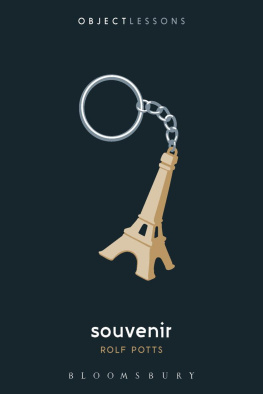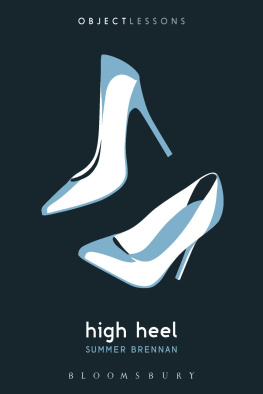Nearly everyone hates hotels.
George Orwell, Down and Out in Paris and London
There was a time in my life when I lived in hotels.
Around this time, the time I did not spend in hotels was time I did not live. During this other time I haunted a marriage I was soon to leave. Theres no place like home and, as home seemed hardly to qualify as a place any more, I began to look for something elsewhere.
I got myself a job as a hotel reviewer for a startup website. There was lots of reviewing to be done. I reviewed grand hotels and boutique hotels, budget hotels and expensive hotels, city hotels (mostly) and country hotels (occasionally). In each hotel I stayed one night, two, three at most. If I planned carefully, I could live in hotels for weeks at a time without taking a break.
What did I look for in hotels? A home away from home? Perhaps.
Some of the hotels I visited were like the homes I had sometimes thought I might have wanted as a child: baronial backstories of hunting prints and tartan (carpets, walls, bedcovers, everything!). Some were Zen gardens of mushroom minimalism; others, boudoirs, where terrifyingly tall satin bed heads and velvet button-back chairs Aliced me into submission. Some hotels wanted to be better than home: seamless, uplit concept spaces; entire rooms dipped in white rubber (a few scuff marks around the feet of the bed); corridors with no lights; walls that changed color at the flick of a switch; black toilet paper.
A few hotels, wishing to be more homelike, installed nervous lounges, and libraries in their lobbies; these usually contained a very few books, artfully arranged, their covers glaring from dark recesses. The books were art books mostly, and mainly photographic landscapes, travel, architecture books about places as far from the hotel as the hotel was from home. As inoffensive and impersonal as the artificially aged leather chairs into which I sank with a kind of pre-made comfort, they were nothing I could settle into. Some of these lounges and libraries had honesty bars which, by their very name, provoked temptation. Several of them displayed cakes and biscuits as well as bottles, but could I take the last slice or be discovered in this very public privacy, covered in crumbs? Set too near to the hotels revolving doors, they were chilly places and largely unfrequented, as were the hotel restaurants, except at breakfast, which was sometimes included in the deal, and sometimes not.
My first hotel was both grand and boutique: a new hotel in a three-centuries-old townhouse in a walled garden in the middle of a city. Its Unique Selling Point was privacy, but the owners wanted a review all the same.
The French-born manager met me in the garden. She apologized, The designer did not want flowers. Flowers are a little. vulgar. We wanted the garden to be like the hotel. There are lots of places where you can be private. Thats why we dont have a name on the door. You have to find the hotel. Its like a secret.
It had taken me a little time to find the hotel, dragging my wheeled suitcase up a cobbled hill in the August heat. The price of rooms ensured that any paying guests would arrive by taxi.
We pushed through plate glass doors into the lobby. It was beautiful: each surface polished, reflective, dazzling. There was marble, there were mirrors and, inside vitrines around the shining walls, there were goods for sale: face creams, commemorative trinkets, cultured pearl earrings, all with discreet price tags; in one vitrine, the crumbling eighteenth-century bill of sale for the hotel building sandwiched between two pieces of glass. Sitting in the rear formation of the lobbys three groups of tastefully mismatched retro-modern and antique gilt chairs, a fat man took phone calls. Pugnacious and balding with a small, square beard, he looked like he might have been the hotels catering supplier, or a visiting movie director. He wore a loud, striped shirt. His leather jacket may have been exquisitely distressed by design or bought from a local street market. He looked as though he could be very rich. Rich enough not to care.
The desk clerk handed me a key. I left my luggage and checked into hotel terminology, which is all tautology and bad puns (I once glimpsed the Terminal Hotel through a train window at Milan station). Hotel lingo is parallel to everyday speech for, on vacation, who acts exactly as they do at home? It moves on restlessly to the last resort, coupling ill-matched lexical strangers in lounge-bars, activity-holidays, hospitality-suites, though some of its cocktailspillow-menu, mini-barcan be hard to swallow.
Hotel was once a word for house, but at some point the term took a turn. Now Hotel stands for difference, which is sometimes inversion (why say, splendid hotel, when you can declare, Hotel Splendid?) and sometimes appropriation (say, maitre d, patio, tapas, not, waiter, yard, snacks). Restless as their vocabulary, hotels across the world are named for elsewhere, each displaced by a city or two: the Hotel Bristol in Paris, the Hotel London in New York and, in Berlin, the Hotel de Rome not to mention the Orientals, the Swissotels, the InterContinentals that pinpoint the globe.
Is a hotel a language system? Its a system of some kind: a series of set elements in different combinations. All hotels invite decoding and every hotel is a concept hotel. I love to read about hotels I have never seen or stayed in, hotels that once stood for something to a reader at one remove in place or time. Joan Didions hotel writing induces the ecstatic vertigo of an entirely self-referential lexicon. Hotel Barbizon, fictionalized by Sylvia Plath in The Bell Jar as Hotel Amazon, is a double signifier for which I have no referent. Names to conjure with! Who cares if these hotels exist and, if they do, whether I will ever visit? The glamour of the entirely unknown is the ultimate in name-dropping.
Many of the hotels I reviewed had recently reinvented themselves but, reopening, seldom thought to change their names; perhaps there is a finite number. There is a Grand Hotel in every city, says Lionel Barrymore in Edmund Gouldings 1932 film that, as if to illustrate his point, is also called Grand Hotel. In the days of Gouldings movie, purpose-built hotels were the last word in chic and new structures required newly invented names: Starwood (founded 1930), Novotel (1965), Accor (1967). Nowadays, rather than neologize, hotels re-purpose. There are hotels in caves, in trees, on rivers, in the ice, in anyplace thats no place like home. Ive stayed in hotels that were once palaces, car parks, brothels. They do not so much wish to leave their original occupations as revisit them in fantasy terms, as ghosts of their former selves. The old new hotels used to pride themselves that every room was the same; the new old hotels boast that every room is different. Chain hotels bind us to the expected (Recollections love, concluded Kierkegaard, checking into a Berlin guesthouse that disappointed on a second visit, is the only happy love.)1 but boutique hotels make a virtue of the local, each of them influenced by its particular place in the world. In these hotels, rooms are named, not numbered. It feels personal, but its not your personal. You adapt yourself to the rooms desires, and it promises to return you to the non-hotel world fitter, chic-er, hipper than on your arrival.
In Paris there is even a Hotel de lAvenir (Hotel Future), which I have never visited.
I treat hotels, even sleazy specimens, says poet and cultural critic, Wayne Koestenbaum, in his book, Hotel Theory, as utopias. How do hoteliers do it? I wonder. Or, rather, why? Whod take up the profession without boundless optimism, boundless generosity, boundless cynicism about the nature of human desire? Im here to try on someone elses version, not of my life, but of an ideal life, cut to my budget. Like the towelling robe in the bathroom, it feels good but it doesnt really fit. Nevertheless Ill put it on. I insert my keycard into the slot. The handle turns. Im in.










